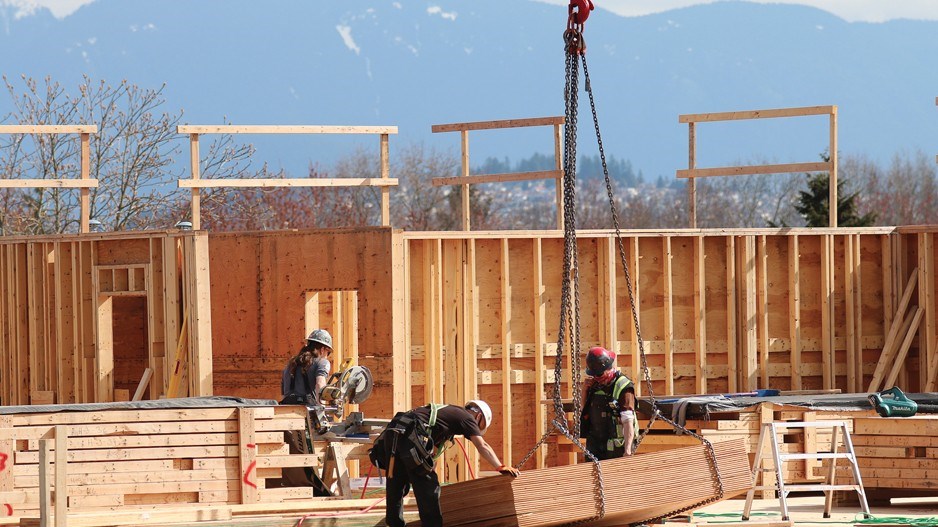On Saturday, October 15, B.C.’s citizens went to the polls to vote for mayor and council candidates in each of their respective municipalities. As the ballots were counted, it was clear that some races demonstrated a significant need for change and a divergence from views and politics of the last 4 years.
In preparation for some new faces in council chambers, we thought it prudent to highlight our thoughts on the difficult chapter these next civic leaders will face as it relates to rental housing.
In June this year, we described the headwinds challenging rental housing providers and builders as they try to deliver new rental housing.
The scarcity of purpose-built rentals in B.C. is well-known, resulting from decades of depressed construction and a shortage of policies incentivizing delivery. A short-lived break from the near 0% vacancy rate and increasing rents in Metro Vancouver occurred in fall 2020, mid-pandemic. We’re now miles away from that small reprieve as asking rates increase at a significant pace year-over-year. CMHC has completed a recent study demonstrating the need for hundreds of thousands of new units in B.C. over the next few years (and millions nationally), well beyond current production.
The last year has challenged the case for building rental. Factors include:
- Increases in construction costs, both labour and materials
- Shortages of supplies shipped around the world
- Increases in interest rates at a pace we haven’t seen in 30 years
- Increases in operating expenses such as property taxes, insurance, and maintenance
- Rental rate increases capped at 2% (following three previous provincial interventions)
Some rental projects have been sidelined for years, while other builders wonder if they should pause or continue with projects they’ve lined up. We anticipate that projects under construction will complete, but financing on the finished building may be less than projected at the beginning of construction. This type of disconnect will particularly affect smaller builders and nonprofits. And with only 689 units completed last year in Vancouver – a 1.4% increase in the purpose-built rental universe in the City – we know we are only doing a fraction of what is required.
Barring any major policy shifts, financial viability can only improve in a few ways so that a meaningful number of new rental projects can be realized. Either revenue improves with rising rental rates and decreasing capitalization rates, or construction costs, operating costs and interest rates go down. Both increases in revenues and decreases in costs have their downsides for the community. Rapidly increasing rental rates, which we’re currently experiencing, have adverse effects for anyone wanting to move, resulting in fewer options for all.
One may inquire why asking rates for rentals have increased so dramatically over the last two years. One reason is that the pandemic created a false economy in which renters vacated suites to move elsewhere, go back home or double up with others. Additionally, for two years, university students were not back on campus, skewing the rental market in a way we’d never experienced. While expenses increased, the provincial government capped rental rates at 0% increases for two years (2020 and 2021). While this seemed justified at the time, the adjustment has taken its toll, and the increased scarcity and rent hikes are causing hardship for tenants.
All levels of government can be part of the solution. For municipal leaders, proposed rental housing units are falling through the cracks and not moving forward. Thousands of approved units haven’t made their way to completion.
Looking ahead, consider B.C.’s population boom. Statistics Canada forecasts more than two million new people in B.C. by 2043, with most of the growth in the metro regions. With an impending federal foreign buyer ban starting January 1st, it is likely that many coming to Canada in the next 2 years will need to rent. Unless we change the current trajectory of rental completions, the housing crisis will only worsen.
New rental construction is desperately needed at a level and pace unthinkable even five years ago. Time will tell how serious the new candidates for mayor and Council are in addressing one of the most important aspects of the future of our cities: where and how people will live. Civic leaders should show courage using innovative thinking and a reversal of tired policies.
For further insights, click below:
“Building more rental housing is a win-win for cities, society”
“With new federal government, we await housing plan”
“The great debate: isn’t rental already a community amenity?”
“Want more affordable housing in Canada, build more houses”
Cynthia Jagger and Mark Goodman are principals of Goodman Commercial Inc, and publishers of The Goodman Report.



